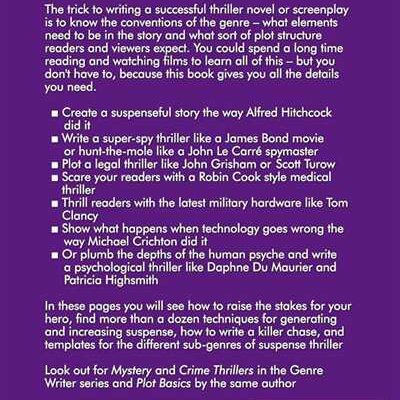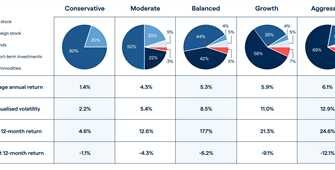
Psychological thrillers are a popular genre in which the elements of suspense, tension, and danger are key. In order to write an effective psychological thriller, one needs to explore the depths of human psychology and master the art of sustaining suspense throughout the story. If you are interested in writing a psychological thriller, there are a few tips and tricks that can help you on your way to crafting a thrilling and gripping novel.
One of the first steps to writing a psychological thriller is to familiarize yourself with the genre. There are different types of thrillers, such as action thrillers or crime thrillers, but psychological thrillers focus more on the mental and emotional aspects of the story. In order to write a successful psychological thriller, you should read books and watch movies within the genre to get a sense of the key elements and themes that are often explored.
Another important tip is to create a strong and engaging idea for your novel. The idea should be unique and intriguing, grabbing the readers’ attention from the very beginning. It could revolve around a character with a dark secret or a twisted mind, or it could involve a series of mysterious events that slowly unravel throughout the story. The key is to create a sense of danger and uncertainty that will keep the readers on the edge of their seats.
Once you have your idea, it is important to develop complex and well-rounded characters. In a psychological thriller, the characters play a crucial role in driving the suspense and tension of the story. They should be flawed and relatable, with their own secrets and motivations. By delving into their thoughts and emotions, you can create a sense of intimacy with the readers, making them feel invested in the outcome of the story.
In terms of writing style, a psychological thriller should be fast-paced and gripping. Short, punchy sentences and paragraphs create a sense of urgency and keep the readers hooked. It is also important to maintain a sustained level of tension throughout the story, gradually building up to the final climax. The pacing should be carefully balanced, with moments of calm and suspense interspersed with moments of intense danger and action.
There are many resources available to help you in mastering the art of writing a psychological thriller. Websites such as The Guardian offer advice, masterclasses, and tips from experienced authors in the genre. You can also find books and online courses that delve into the specific techniques and strategies for writing a psychological thriller. By utilizing these sources of information and refining your writing skills, you can create a truly suspenseful and captivating novel that will keep your readers on the edge of their seats.
In conclusion, writing a psychological thriller requires a deep understanding of human psychology, effective storytelling techniques, and a knack for creating suspense and tension. By following these tips and exploring the vast range of resources available, you can embark on a thrilling writing journey that will captivate readers and leave them eagerly anticipating your next novel.
The key elements in an effective psychological thriller are
When writing a psychological thriller, there are several key elements that should be present in order to create an effective story. These elements help to build suspense, engage readers, and make the thriller genre truly captivating.
| 1. Tension and Suspense | The heart of any psychological thriller is its ability to create tension and suspense. From the opening pages of the novel, readers should feel a sense of unease and danger, wondering what will happen next. The writing should be suspenseful, with twists and turns that keep readers on their toes. |
| 2. Exploration of Everyday Danger | Psychological thrillers often explore the dangers that can lurk in everyday situations. They take ordinary people and put them in extraordinary circumstances, showing how easily anyone can become a victim or perpetrator. By tapping into common fears and anxieties, these thrillers resonate with readers on a personal level. |
| 3. Sustained Suspicion | One of the strengths of psychological thrillers is their ability to sustain suspicion and keep readers guessing. The story should be filled with red herrings, false leads, and unreliable narrators, creating an atmosphere of uncertainty and doubt. This keeps readers engaged and invested in solving the mystery. |
| 4. Deep Dive into the Psyche | Psychological thrillers delve into the complexities of the human mind, exploring the motivations and inner thoughts of characters. They often feature psychological twists and mind games, challenging readers to unravel the truth and understand the characters’ actions. This psychological depth adds depth and intrigue to the story. |
| 5. Masterful Plotting and Pacing | Effective psychological thrillers have masterful plotting and pacing. The plot should be carefully constructed, with well-placed twists and surprises. The pacing should keep readers hooked, with a balance of action, revelations, and quieter moments of character development. This creates a page-turning reading experience. |
| 6. Tip of the Iceberg | Psychological thrillers often feature an initial mystery or danger that is just the tip of the iceberg. As the story unfolds, the true extent of the danger is revealed, surprising readers and increasing the stakes. This gradual unveiling adds layers of complexity to the story and enhances the suspense. |
By incorporating these key elements into your writing, you will create an effective psychological thriller that will keep readers on the edge of their seats. Remember to build tension and suspense, explore everyday dangers, sustain suspicion, dive into the psyche, masterfully plot and pace the story, and reveal the tip of the iceberg to keep readers engaged and captivated.
For more advice on writing psychological thrillers, you can explore sources like The Guardian’s masterclasses and other writing-related websites. These sources provide valuable information and tips from experienced authors in the genre.
Explore thriller types and find your idea

When it comes to writing a psychological thriller, one key element that every novel should have is a unique and gripping idea. But where do you find that idea? How do you come up with something that will hook readers and sustain their interest throughout the entire book?
One tip is to explore different thriller types and see what resonates with you. There are 6 main types of thrillers: psychological, suspense, crime, action, spy, and legal. Each of these genres has its own unique strengths and can provide a different kind of tension and danger in terms of story. By familiarizing yourself with these genres, you can find inspiration for your own thriller.
Another way to find your idea is to read and watch other psychological thrillers. See what works in those stories and think about how you could put your own spin on those elements. Pay attention to the character development, the pacing, and the plot twists. Consider how these different elements could be incorporated into your own story.
There are also many resources and masterclasses available where you can learn more about writing effective thrillers. These sources can provide valuable advice and information on how to create and sustain suspense, build tension, and keep your readers on the edge of their seats.
In terms of everyday sources, there are several places where you can find inspiration for your thriller idea. You can take inspiration from real-life events, news articles, or even your own personal experiences. Sometimes the most mundane moments can be the starting point for a gripping and thrilling story.
Ultimately, finding your idea for a psychological thriller requires a combination of exploration, reading, and open-mindedness. Be open to ideas that may initially seem unrelated to the genre, as they could be the key to a unique and compelling story. So, explore the different thriller types, read other psychological thrillers, seek advice and information, and be open to inspiration from unexpected sources. In doing so, you will be well on your way to finding the idea that will make your novel a refund feature.
Types of thriller novel
When it comes to writing a psychological thriller, there are several types of novels you can explore to create a gripping and suspenseful story. Understanding these different types can help you engage your readers and keep them on the edge of their seats throughout your book. In this article, we will open up 6 key types of thriller novels that feature elements of danger, suspense, and psychological tension.
1. Psychological Thrillers: One of the most effective types of thrillers, these novels focus on the inner workings of the human mind. They explore the psychological complexities of the characters and the dangerous situations they find themselves in. In terms of writing, the key tip is to sustain tension and suspense, leading readers to question the sanity and motives of the characters.
2. Crime Thrillers: Crime thrillers often feature a detective or a protagonist who must solve a mystery or unravel a crime. These novels typically involve dangerous criminals, police investigations, and a thrilling chase. The guardian advice is to create a strong central character and an intriguing plot that keeps readers guessing until the end.
3. Techno Thrillers: In the age of technology, techno thrillers are becoming increasingly popular. These novels focus on the intersection of technology and danger, often involving hackers, spies, or cyber warfare. To write a convincing techno thriller, you should have a good understanding of technological terms and find ways to keep the suspense high using everyday technology.
4. Supernatural Thrillers: If you want to delve into the realm of the supernatural, these thrillers are perfect for you. Supernatural thrillers often feature ghosts, demons, or other paranormal phenomena. The key here is to create a sense of the unknown and make readers question what is real and what is not.
5. Political Thrillers: Political thrillers explore the world of politics and its dangers. They often involve political conspiracies, espionage, and the struggle for power. When writing a political thriller, you should aim to create a complex plot and keep readers on their toes with unexpected twists and turns.
6. Domestic Thrillers: Domestic thrillers take place in everyday settings such as homes and neighborhoods, focusing on the danger that can lurk in ordinary life. These novels often feature family secrets, betrayals, and intense psychological drama. The key to writing a compelling domestic thriller is to build tension within the familiar, making readers question who they can trust.
These are just some of the types of thriller novels you can explore. Each type has its own unique strengths and will engage readers in different ways. Remember to master the elements of danger, suspense, and psychological tension in your writing, regardless of the type of thriller you choose to write. Refund your readers’ trust with every chapter and unleash the thrill that keeps them turning the page.
6 Tips for Writing Thrillers
Writing an effective psychological thriller requires a mastery of certain key elements. In this article, we will explore 6 tips to help you write thrilling novels that will keep readers on the edge of their seats.
| Tip | Advice |
|---|---|
| 1 | Open with danger |
| 2 | Create sustained suspense |
| 3 | Guardian readers will find these tips of refund |
| 4 | Exploit everyday tension |
| 5 | Master the art of plot twists |
| 6 | Develop complex and compelling characters |
One of the key tips for writing thrillers is to open your novel with danger. This immediately hooks readers and sets the tone for the suspense to come. Whether it’s a physical threat or a psychological one, the idea is to introduce the main conflict as early as possible.
Another important tip is to create sustained suspense throughout the story. Building tension and keeping readers guessing will ensure they can’t put the book down. This can be achieved through careful pacing, strategic reveals, and unexpected plot twists.
In terms of plot, it’s essential to explore everyday tension and danger. This can include threats that are relatable to readers, such as workplace politics, family secrets, or manipulative relationships. By tapping into these universal experiences, you can make your thriller more engaging and relatable.
Mastering the art of plot twists is another crucial element of writing thrillers. These unexpected turns in the story keep readers engaged and guessing, while also challenging their assumptions about the characters and the plot. A well-executed plot twist can elevate a thriller from good to great.
Finally, a psychological thriller needs strong and complex characters. Your protagonists should be well-developed and multidimensional, with their own flaws and motivations. This adds depth to the story and allows readers to connect with the characters on a deeper level.
By following these 6 tips, you can write psychological thrillers that will captivate readers and leave them wanting more. Remember, the key is to weave together elements of danger, suspense, and relatability to create a gripping and unforgettable story.
Tip 1: Suspense Needs to Be Sustained
In the genre of psychological thrillers, suspense is a key element that keeps readers at the edge of their seats. To write an effective psychological thriller, you must know how to sustain tension throughout your novel. In this tip, we will explore the importance of suspense and how to master the art of creating a sustained suspense in your writing.
1. Build tension from the very beginning: Open your novel with a scene or an idea that will immediately grab readers’ attention. This could be a dangerous situation or a mysterious event that hints at the danger to come. By opening with such a feature, you set the tone for an intense and suspenseful story.
2. Introduce elements of danger and uncertainty: Throughout your novel, you should constantly find ways to introduce new sources of danger, mystery, and uncertainty. This could be in the form of unexpected plot twists, threats to the protagonist’s safety, or the revelation of hidden secrets. By keeping readers on their toes, you ensure that the suspense continues to build.
3. Leave breadcrumbs of information: As your story progresses, you should strategically reveal information to the readers. These breadcrumbs can be clues, hints, or a glimpse into the antagonist’s motives. By doing so, you keep readers engaged and invested in uncovering the mystery.
4. Create everyday tension: Suspense doesn’t always have to come from major life-or-death situations. In fact, everyday situations can be just as effective in building suspense. By tapping into common fears, insecurities, and conflicts, you can create tension that readers can easily relate to. This makes the suspense much more personal and engaging.
5. Explore the strength of your characters: As the danger escalates, the characters in your psychological thriller should be tested to their limits. Their strengths and weaknesses should be explored and utilized in the face of danger. This adds depth to the story and heightens the suspense as readers wonder how the characters will overcome the challenges they are faced with.
6. Follow expert advice and attend masterclasses: Writing psychological thrillers requires a deep understanding of the genre. To enhance your skills, you should consider reading articles and books on the subject, attending writing workshops and masterclasses, and seeking advice from experienced authors. These valuable resources can provide you with the tools and knowledge needed to create a truly gripping psychological thriller.
In conclusion, the key to writing a psychological thriller lies in sustaining suspense throughout your novel. By following these tips and incorporating the elements of tension, danger, and uncertainty, you can create a thrilling reading experience for your audience. Remember, your goal is to keep readers on the edge of their seats, eager to turn the page and find out what happens next.
| Sources: | – The Guardian | – Writing Thrillers: The Definitive Guide by T.J. Cooke |
Information on Guardian Masterclasses

If you are interested in writing a psychological thriller, The Guardian offers a range of Masterclasses that can provide you with valuable advice and tips to help you craft a gripping and suspenseful novel. These Masterclasses cover the key elements of the genre and delve into the types of suspense that readers crave.
Writing an effective psychological thriller requires sustained tension and danger, and the Masterclasses will explore how to build and maintain these elements in your story. They will also feature tips on character development, plot structure, and creating a sense of unease that will keep readers on the edge of their seats.
The Guardian Masterclasses are open to anyone who wants to learn more about writing psychological thrillers. Whether you are a beginner or an experienced writer, these classes will provide you with the information and tools you need to write a successful novel in this genre.
In terms of writing tips, one of the key pieces of advice you will find in the Masterclasses is to focus on the everyday, where danger can lurk. By taking an idea or situation from an ordinary setting and injecting a sense of threat, you can create a compelling story that will captivate readers.
Another important tip is to explore the internal psychological landscape of your characters. By delving into their fears, desires, and motivations, you can create complexity and depth that will engage readers on an emotional level.
If you are not satisfied with the Masterclass experience, Guardian Masterclasses offers a refund policy where you can request your money back if the class did not meet your needs.
So if you are looking to write a psychological thriller, The Guardian Masterclasses are the perfect source of information and guidance. Whether you are just starting out or looking to improve your skills, these classes will provide you with the knowledge and expertise to create a gripping and suspenseful novel that will keep readers turning the pages.
Sources
If you want to write a psychological thriller, there are several sources you can explore for tips and advice. These sources will provide you with key information on writing in the genre and help you master the elements of suspense and tension that are essential to an effective psychological thriller.
1. The Guardian: The Guardian is a great source for tips and advice on writing psychological thrillers. They often feature articles and masterclasses that delve into the key elements of the genre and provide guidance on how to create tension, develop suspense, and write a compelling novel.
2. Refund: Refund is a website where you can find a wealth of information on writing psychological thrillers. They offer tips, advice, and resources to help you develop your idea and craft a thrilling story that will keep readers on the edge of their seats.
3. Everyday Danger: Everyday Danger is a blog that focuses on the everyday sources of danger that can be found in psychological thrillers. They provide advice on how to use these everyday dangers to create tension and suspense in your writing.
4. Be Open and Be Dangerous: Be Open and Be Dangerous is a book that explores the idea of being open to new experiences and dangerous situations in order to strengthen your writing. It offers insights and tips for incorporating these elements into your psychological thriller.
5. Writing Masterclasses: Many writing masterclasses and workshops offer sessions specifically focused on writing psychological thrillers. These classes can provide invaluable guidance and feedback on your work, helping you to improve your writing skills and develop your story.
6. Online Communities: There are many online communities where aspiring writers can connect with others who are interested in writing psychological thrillers. These communities provide a supportive environment where you can share tips, ask for advice, and receive feedback on your work.
By exploring these sources, you will find the advice and information you need to write a psychological thriller that sustains tension and keeps readers in suspense.










